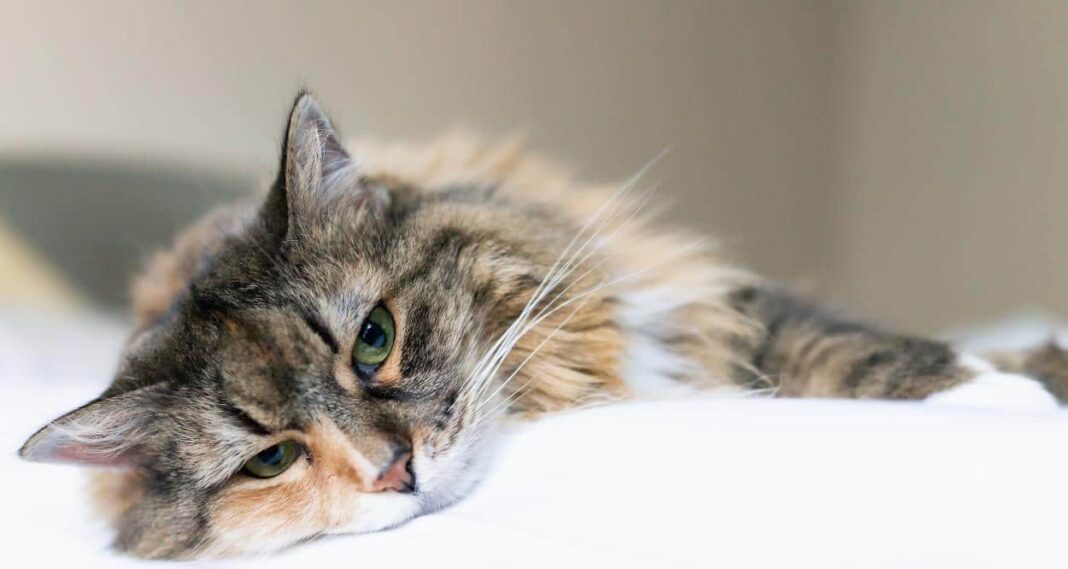In most cases, cat owners have no idea why their cat is sad. This often happens if there is a change in your family – a new member has appeared, or vice versa – someone has left. Meowing friends don’t like change because it makes them feel defenseless. This can be reflected in all sorts of behaviors and states, sadness being one of them.
How can I tell if my cat is sad?
Some of the symptoms are very reminiscent of the way we feel when our lives are not going as we expect and we are depressed.
• Loss of appetite. If your cat has stopped eating or you have noticed a sudden change in appetite, she may be unhappy with something. Sad animals may lose enthusiasm for their favorite food or treat.
• Excessive sleep. Purring pets usually sleep a lot, but sad or depressed pets sleep even more.
• Change in meowing. Your cat may meow more or less than usual, which could be an indication that he is unhappy. Some purring friends, who are usually vocal, may become quiet, or vice versa.
• The body language. Sometimes the body language of your fluffy roommate can tell you about his unhappiness. Lying back ears, tail low on the floor, sad eyes are all evidence that something is wrong.
• Aggression or fear. Sad cats sometimes tend to show unusual aggression or fear.
• More hiding and less play. As with humans, a sad pet may lose interest in activities that have engaged it, such as playing with favorite toys.
• Poor washing and neglect of hair care. This may be a sign of sadness or ill health. Cats that do not feel well or are depressed often stop caring about their appearance.
• Marking or changes in the use of the toilet. If your purring roommate is sad, he can use his own scent to make him feel better when urinating in the wrong places. In general, there are many reasons to urinate outside the toilet, but stress, depression and sadness are also possible explanations.
• Excessive scratching. If your cuddly friend is depressed, he may start scratching objects more than usual to relieve stress as well as disperse his scent.
What are the possible causes of sadness in cats?
As mentioned, the reasons can vary, and often remain a mystery to owners. In most cases, they associate with family members, whether they are humans or other animals. Whatever the reason, be sure to give him extra time and attention until you notice that your fluffy roommate doesn’t feel happy again.
• Disease
Illnesses can make your cat feel bad on a mental level as well as physical pain. Your meowing friend may feel nauseous, unwilling to eat, suffer from a hormonal imbalance, or lack energy due to illness. Liver disease, feline immunodeficiency virus (FIV), upper respiratory disease, diabetes, thyroid problems, dental disease and more are serious health problems that can affect your cat’s mood.
If you suspect that your pet is depressed because he is ill, you should schedule a visit to your veterinarian as soon as possible.
• Physical trauma
Injuries can limit your cat’s ability to do things she once enjoyed. Make sure you follow your veterinarian’s recommendations for pain relief, or if your cat appears to be in pain, schedule an examination. Even old surgeries or injuries can cause additional discomfort to your pet friend.
• Loss of a loved one
Losing a family member is always difficult for everyone and your cat is no exception. When a family member (human or animal) dies or moves out, your cat may grieve and become depressed.
This is usually only a temporary behavior and after a while you will notice that your meowing roommate will return to normal.
If your pet is depressed because another cat in the household has died, he or she may feel better than a new friend. However, be careful when introducing another hairy roommate to your family too soon.
How to help a depressed cat feel better?
At first, you have to be patient. Try to pay more attention to the injured pet. You can try some of these simple tricks:
• Offer your cat special treats to entice her to eat.
• Try some new interactive toys and games to stimulate her brain.
• Take extra time to play.
• Move the cat tree to a window or a new place so that it has a different look.
• Provide her with a personal space where she can be alone without worries
Whatever the reason for the possible sadness that bothers your purring friend, your strongest weapon is to show him that you are by his side and love him. Remember that this condition is temporary. With a little patience, more play and new treats, your meowing roommate will soon regain his energy.









